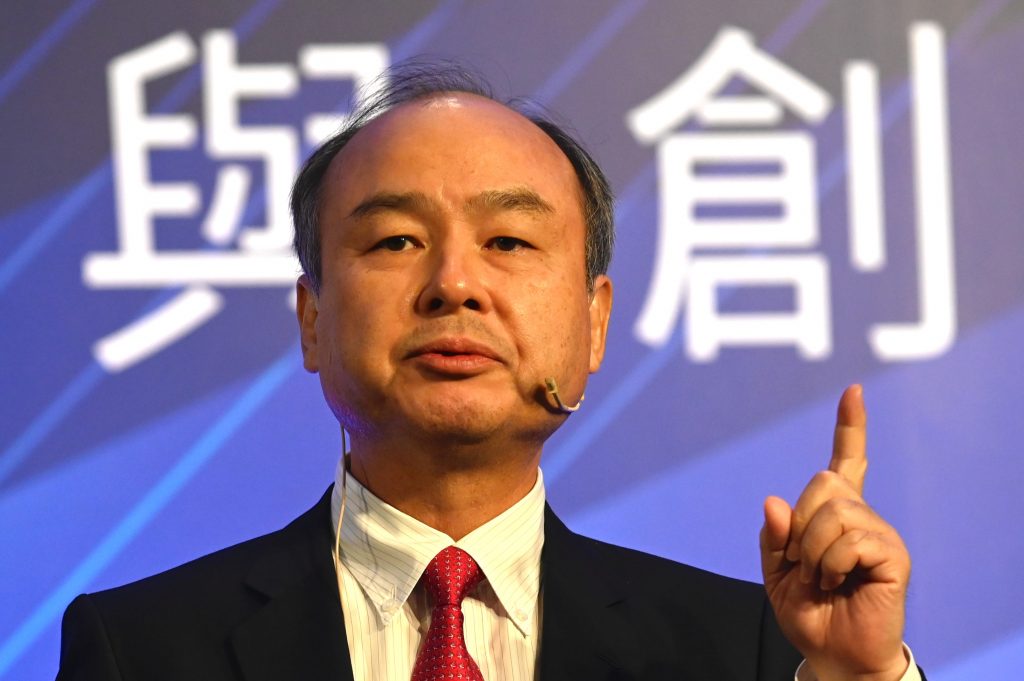
- ARAB NEWS
- 25 Apr 2024

Frank Kane
In the glittering modernity of SoftBank’s global headquarters by Tokyo Bay stands a statue of a 19th-century Japanese hero, Sakamoto Ryoma, hand outstretched in welcome to visitors.
Ryoma was a modernizer and a reformer at a time when the country was deciding between feudal isolationism and a more outward-looking role in global affairs. In modern business parlance, he was a “disrupter.”
Which makes Ryoma the perfect corporate symbol for SoftBank and its founder Masayoshi Son, who has made disruption his trademark ever since he launched SoftBank way back in 1981.
Since then, Son has disrupted industries as diverse as publishing, computers and mobile communications, making himself a billionaire along the way. “We only live once, so I want to think big,” Son said, explaining his life philosophy.
Like Ryoma, Son has a vision. He wants to shape the technological future of the world, helping determine how we will live our lives not just over the next decade, but 50 or 100 years from now. And he sees Saudi Arabia as his ideal partner.
Son disrupted the hi-tech venture capital industry based around Silicon Valley in California with the launch of his $100 billion Vision Fund aimed at backing entrepreneurial startups that will develop the technologies of the future. That one fund was bigger than the hitherto existing US venture capital industry.
Saudi Arabia was a major investor – to the tune of $45 billion from the Public Investment Fund (PIF) – in that venture.
A meeting between Son and Crown Prince Mohammed bin Salman during a Saudi royal visit to Tokyo in 2016 led to a meeting of minds that produced the bulk of the resources for the first Vision Fund and encouraged other investors – such as Mubadala of the UAE – to follow the Saudi example.
Before long, billions of dollars were being injected into some of the most ground-breaking technologies of the day. The big ones, like Uber and other ride-hailing tech firms, are well known, as is the most controversial, the workspace business WeWork.
But there were others too that did not immediately grab the headlines: Startups in biotechnology, semiconductors, insurance, agriculture, robotics, and insurance. There was even an app that allowed pet owners access to walkers for their dogs. Vision Fund was, in the words of one venture capital expert, “the most powerful investor in the world.”
That all-conquering image has been dented recently by two events: The less-than-successful initial public offering (IPO) of Uber, and the aborted stock exchange flotation of WeWork.
Uber shares are trading some 25 percent below their IPO price, and could lead SoftBank to book a multi billion write-down on its investment; similarly, WeWork’s failure to come to market will also lead to a significant hit for the Vision Fund and for SoftBank.
Son has felt the losses personally. “The results still have a long way to go and that makes me embarrassed and impatient,” he said recently.
Vision Fund insiders point out that its investments are long-term, and that it would be misleading to take a snapshot view halfway through the investment cycle. They also say that other investments in the portfolio – such as the healthcare business Guardant and biotech company 10x Genomics – have been more successful.
But the disappointing performance of the big names in the portfolio leaves Son, and Saudi Arabia, in a quandary.
In July the SoftBank boss – in true disrupter mode – announced a second, even bigger megafund, Vision Fund 2 (VF2), with on-paper commitments totaling $108 billion and many months to go to reach an ambitious, but unofficial, target of $150 billion.
Neither Saudi Arabia’s PIF nor the UAE’s Mubadala were involved in that first round of commitments, and both have indicated they would scale back their commitment to VF2 to much more modest levels – if they even decided to invest at all. Updates are expected in time for SoftBank’s second-quarter earnings announcement in early November.
Son faces another challenge too, outside the Vision Fund arena. He spent billions in 2013 to acquire the American telecoms company Sprint but promised growth has not materialized and now he wants to merge Sprint with T-Mobile in a deal that has hit regulatory and legal problems. If he cannot see the merger through, the future for stand-alone Sprint is bleak, analysts say.
Like his mentor Sakamoto Ryoma, Son is sanguine and thinking long-term. “It’s a long journey. There will be good times, and there will be bad times, but SoftBank is always there,” he once said.